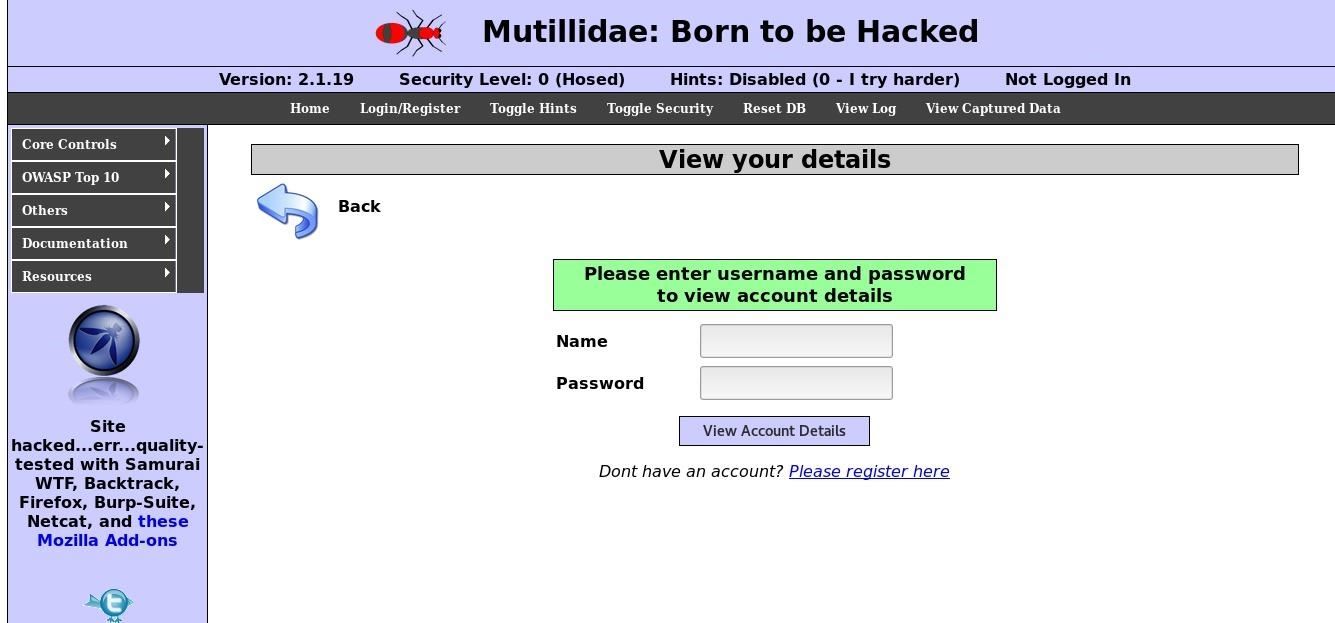

- #Sql injection burp suite how to#
- #Sql injection burp suite software#
- #Sql injection burp suite code#
The query above ends up with the following, unintended output: Hello A serious privacy problem and in some jurisdictions or contexts a potential legal problem as well, such as GDPR, HIPAA, or CCPA. In this case showing you messages for every user in the table.
#Sql injection burp suite code#
The same code will assemble the following SQL query string: Select message from user where email = or ‘1’=’1’ Īdding something seeming innocuous such as “or 1=1” changes the logic of the query and potentially leaks data by returning all of the rows in the table called “user”. Using the same form above, someone enters or ‘1’=’1” in the email field. Given the use of user input directly in the string, someone who understands SQL syntax can easily manipulate it to generate the SQL query. Hopefully, it’s easy to see how this can all go wrong. Using this constructed query: Select message from user where email= output from this (using the table above as the example) is as follows: Hello The string entered as “Name” is used to assemble the query using that user input: String myQuery = “select message from user where email = ‘” + formName +”’ ”
#Sql injection burp suite software#
The software processes the form and assigns the values to variables something like this: String formName = request.getParameter(Name) The data the users enter in the field “Name”, for example, is used to form SQL queries based on input received. The output would be as follows: input from users with a web form (see below), is a common use case in web applications. Using the above tables as an example to retrieve the email from the row where the last name is “Smith”, the following SQL statement is used: Select email from user where lastname = ‘Smith’ Here are some simple SQL queries:Ī typical SQL query takes the following form: Select (something) from (somewhere) (optional condition) In many cases, SQL commands are sent as strings that the API interprets and applies to the database. Access to database commands is via an API provided by the database vendor. General programming languages don’t include support for SQL. For most day-to-day use, developers use SQL for “CRUD” - to create, read, update, and delete data.

It defines the tables and relationships in database creation. SQL is the language of choice for managing, querying, and manipulating data in a relation database. Each row has a key that provides the relationship to other tables. Relational databases present data as a collection of tables in rows and columns. SQL is a domain-specific language designed for the management of relational databases. A mature DevSecOps process that incorporates detection and prevention of vulnerabilities is likely to catch and prevent these types of vulnerabilities from ever entering a released product. Preventing SQL injections is also key to reducing the frequency and impact of these vulnerabilities. However, you can never be sure you caught them all. They’re exploited using data from outside the system, user or file input, or whatever, in potentially dangerous functions.įortunately, SQL injections are detectable by tools both statically and dynamically.
#Sql injection burp suite how to#
Despite its reputation, how to prevent SQL injection remains one of the leading vulnerabilities, and attacks continue to grow. The SQL ( structured query language) injection is a well-known, if not, one of the best known, software weaknesses and security vulnerabilities.


 0 kommentar(er)
0 kommentar(er)
